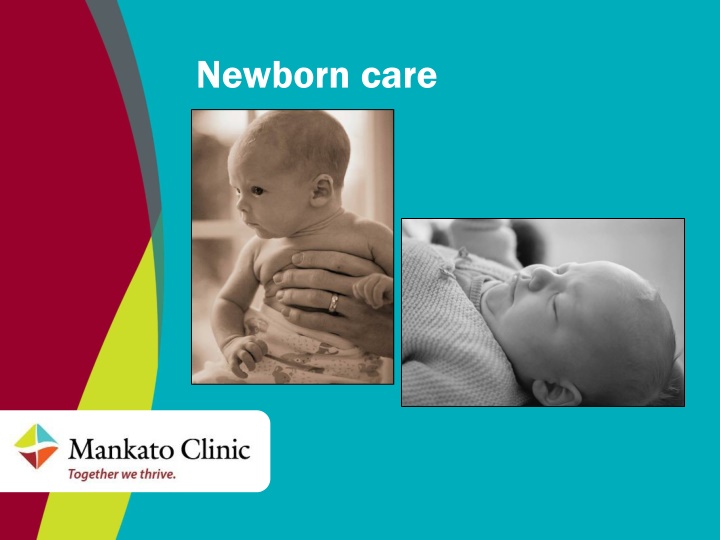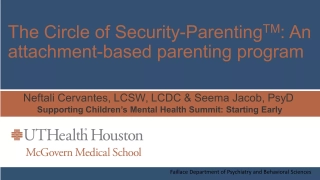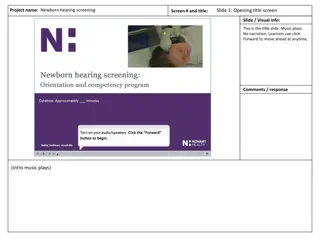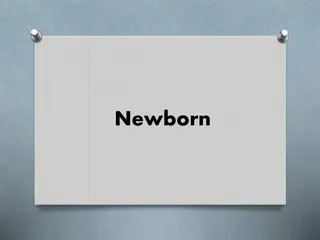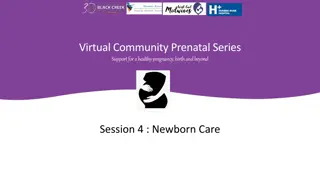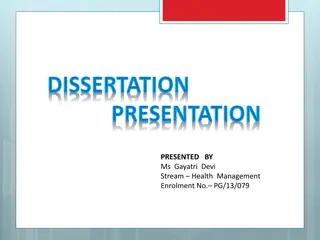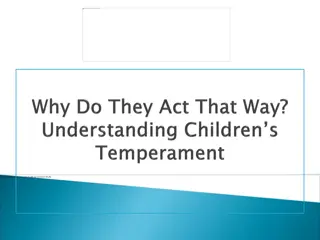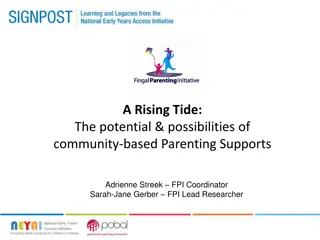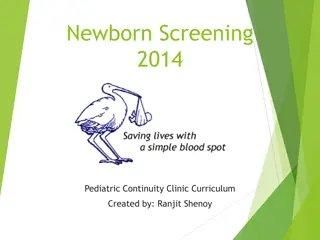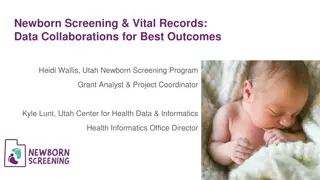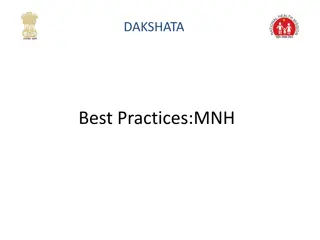Comprehensive Guide to Newborn Care and Parenting
This detailed guide covers essential topics related to newborn care and parenting, including choosing a healthcare provider, newborn supplies, baby's health at birth, circumcision, special care scenarios, feeding tips, and more. It provides insights into key aspects such as healthcare decisions, baby's adjustment, feeding methods, and potential medical procedures. Whether you're a first-time parent or looking to refresh your knowledge, this comprehensive resource is designed to support you in confidently navigating the early stages of parenting.
Download Presentation

Please find below an Image/Link to download the presentation.
The content on the website is provided AS IS for your information and personal use only. It may not be sold, licensed, or shared on other websites without obtaining consent from the author.If you encounter any issues during the download, it is possible that the publisher has removed the file from their server.
You are allowed to download the files provided on this website for personal or commercial use, subject to the condition that they are used lawfully. All files are the property of their respective owners.
The content on the website is provided AS IS for your information and personal use only. It may not be sold, licensed, or shared on other websites without obtaining consent from the author.
E N D
Presentation Transcript
What to do now: Chose baby s healthcare provider Family Practice and Pediatric Providers A few good books Newborn supplies
When a baby doctor attends delivery Less than 37 weeks gestation Emergency C-Section Multiples Hospitalist vs. Primary Provider
At birth Skin to Skin time Apgar checks at 1 minute and 5 minutes after birth Baby s temperature Breastfeeding If needed, baby care is done in the warmer
Other baby cares Weight, height, and head circumference Medications: Vitamin K shot, Hepatitis B shot, and eye ointment Screening blood tests (heel stick) at 24 hours Hearing test performed usually first night Jaundice
Circumcision Pros and cons Description of procedure Timing of appointment When Where
Just in case Occasionally, a newborn may need special attention the hospital in Mankato is not equipped to provide. The baby will be transferred to a neonatal unit at a different hospital for specialized care If your baby would need to be transferred, Mankato Clinic Providers work closely with several area hospitals
Babys adjustment Stools meconium first Sleeping Responding to baby s cries
Feedings Breast or bottle both provide adequate nutrition Babies need night feedings for at least the first 6 weeks First feeding will usually be within the first hour after delivery, then usually every 2-3 hours during the first month of life Babies should be fed on demand by paying attention to his/her signals
Feedings continued Breast Perfect nutrition, contains antibodies, protection from obesity, asthma and allergies Health benefits for mom and baby Inexpensive and always available Bottle Commercial formulas are very similar Others can share in feedings more easily
Feedings continued How to know if your baby s getting enough 6 or more wet diapers per day 4 or more bowel movements (BMs) per day (may decrease to every 3-7 days after 4-6 weeks old) Weight gain will be the best indicator
When to call the doctor Fever more than 100.5 Marked changes in eating Very watery stools Excessive sleepiness Excessive irritability
First week of life visit Call to schedule visit within 48 hours after birth Newborn assessment Lactation support for mom
Well child visits These exams are important for growth, developmental milestones and immunizations 1st week of life 1 month 2 months 4 months 6 months 9 months 12 months 15 months 18 months 2 years 3 years 4 years kindergarten
Safety for baby Car seat Car Seat Safety classes are offered through the Mankato Clinic Foundation Keep baby away from second hand smoke Never shake a baby Back to sleep in an empty crib
Enjoying your newborn You CANNOT spoil a baby by giving him/her too much attention! Holding, talking and singing Attend to baby s needs Reading Seeking help when needed Lots of love
Movie 5 S s
